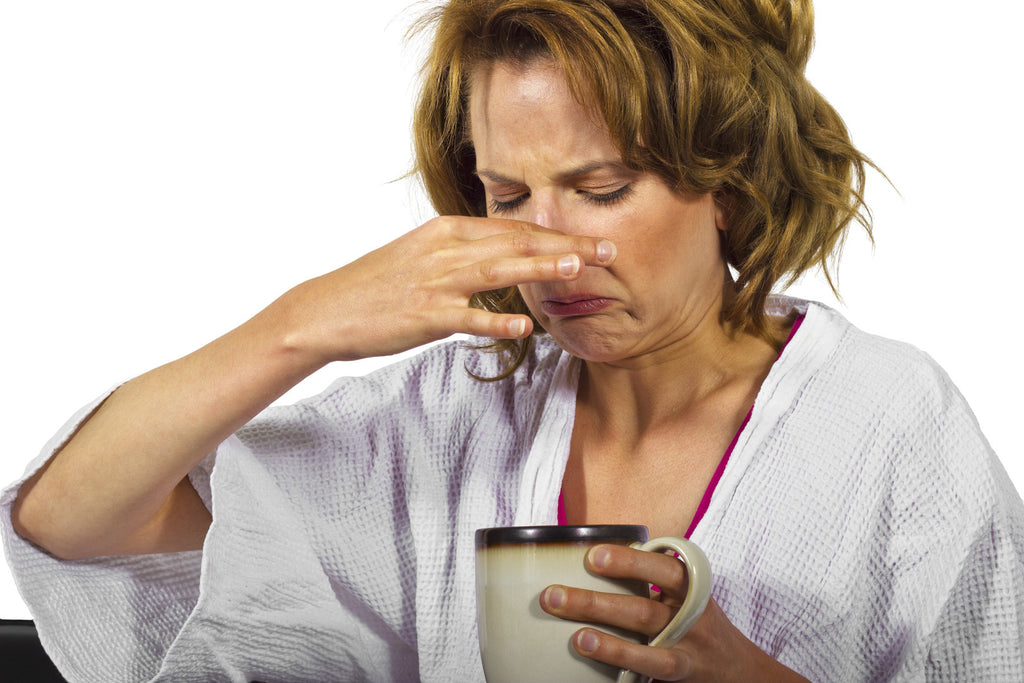Why Your Home-Brewed Coffee Might Taste Bad

Introduction
Ah, the comforting aroma of freshly brewed coffee—there's nothing quite like it to kickstart your day. However, if your home-brewed coffee doesn't quite live up to the taste of your favorite coffee shop, you might be wondering what's going wrong. Fear not! In this blog article, we'll explore some common factors that could be contributing to the less-than-satisfying flavor of your coffee.
Title: Common Culprits:
Poor Quality Beans
The foundation of great coffee always begins with the quality of the beans. If you're using old, stale, or low-grade beans, you're setting yourself up for disappointment. Coffee beans are at their best within a few weeks of roasting, and as they age, they lose their flavor and aroma. All good coffee shops will serve specialty grade coffee so to ensure a better-tasting brew at home, always opt for fresh, 100% Arabica specialty coffee beans and store them properly in an airtight container away from light and moisture. Avoid storing in the refrigerator or freezer where they will absorb odors that will affect their flavor.

Incorrect Coffee-to-Water Ratio
Getting the right coffee-to-water ratio is crucial for a well-balanced cup of coffee. Using too little coffee grounds can result in a weak and watery brew, while using too much can lead to a bitter and overpowering taste. A standard starting point is using about 1 to 2 tablespoons of coffee per 6 ounces of water, but feel free to adjust based on your preference. Only you can decide the best ratio to use to satisfy your taste preference.
Inconsistent Grind Size
The grind size of your coffee beans has a significant impact on the extraction process. If the coffee grounds are too coarse, the water may pass through too quickly, resulting in a weak and underwhelming flavor. On the other hand, overly fine grounds can lead to over-extraction, causing a bitter and unpleasant taste. Blade grinders will produce an inconsistent grounds size and overgrinding with these high-speed blades can burn the coffee grounds. We recommend investing in a quality burr grinder to achieve a consistent grind size suitable for your chosen brewing method.

Water Quality
Surprisingly, the water you use to brew your coffee can make a big difference in taste. If your tap water has a strong odor, taste, or contains impurities, it will affect the final cup. Use filtered or bottled water (spring water, not distilled) to minimize any unwanted flavors and ensure a cleaner, more enjoyable brew.
Brewing Time and Temperature
The length of time your coffee brews and the water temperature are crucial factors to consider. Over-extraction from a prolonged brewing time can lead to bitterness, while under-extraction can result in a sour or weak taste. Aim for a brewing time of around 3-4 minutes for most methods like drip, pour-over, or French press. Additionally, water that is too hot (over 205°F or 96°C) can scorch the coffee, so keep your water temperature in the “Goldilocks zone” between 195°F and 205°F (90°C to 96°C).
Using the Wrong Brewing Method
Different coffee beans and roasts excel with various brewing methods. Using the wrong brewing technique might not bring out the best in your coffee. For example, some beans shine in a pour-over, while others are better suited for a French press or espresso machine. Experiment with different methods to find the one that complements your beans' flavor profile.
Equipment Cleanliness
Neglecting to clean your coffee equipment regularly can negatively impact the flavor of your coffee. Old coffee oils and residues can accumulate in your coffee maker or grinder, leading to rancid and bitter notes in your brew. Make it a habit to clean your coffee maker, French press, and grinder according to the manufacturer’s recommendations. Simple solutions of water and vinegar are great for descaling.
Conclusion
Achieving a perfect cup of home-brewed coffee takes a combination of art and science. By paying attention to the quality of your beans, mastering the right coffee-to-water ratio, using consistent grind sizes, selecting clean and filtered water, and controlling brewing time and temperature, you'll be well on your way to a superior coffee experience. Remember, practice makes perfect, so don't be afraid to experiment and tailor your coffee brewing process to suit your taste preferences. Check out our Perfect Cup here. Happy brewing!

Leave a comment